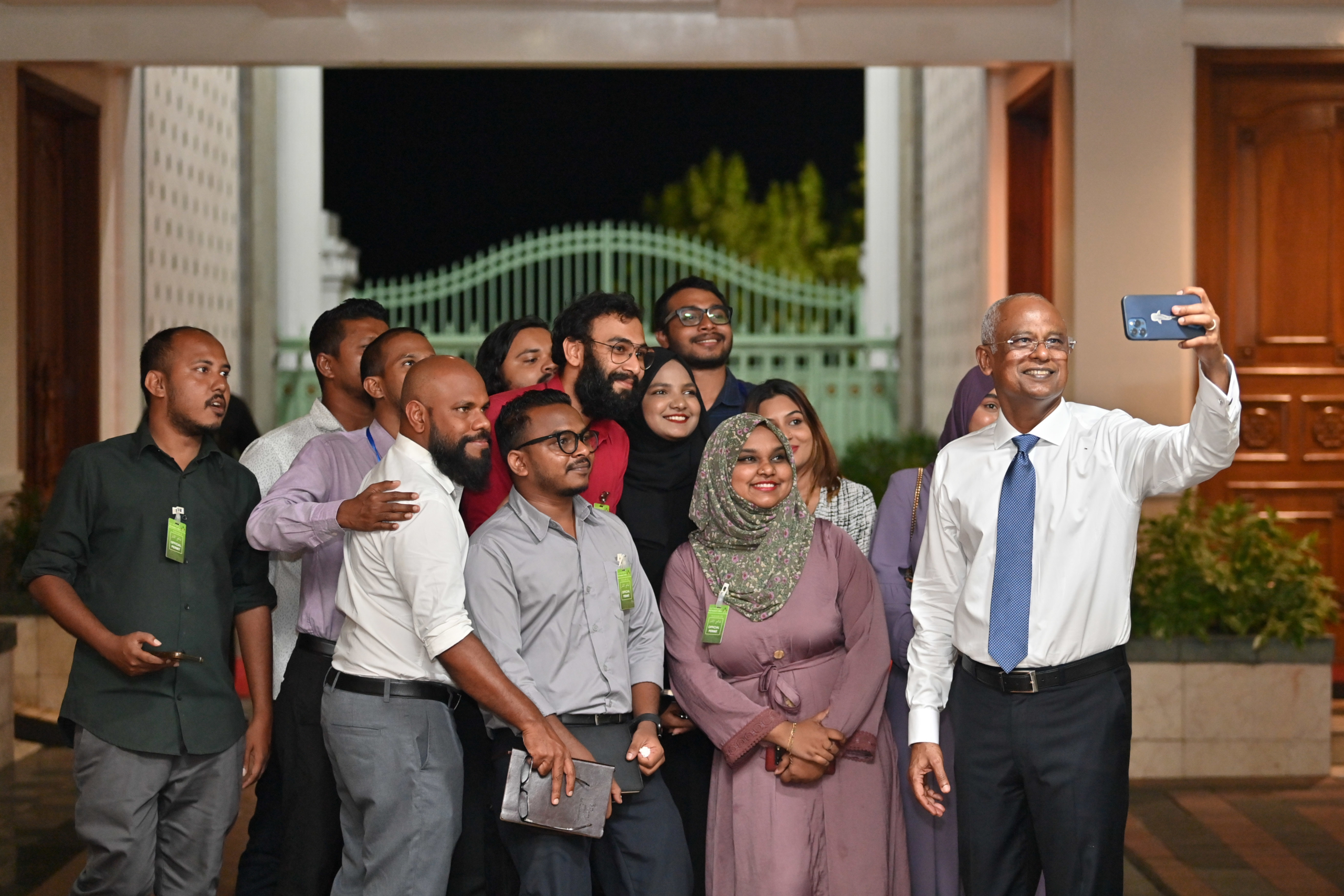Maldives has dropped from 87th position of 2022 to 100th position in the 2023 World Press Freedom Index of Reporters Without Borders (RSF).
In 2018, Maldives was ranked 120th in the world in the Press Freedom Index and was ranked 98th in 2019 and 79th in 2020, respectively. It rose to 72nd in 2021 and dropped 15 places to 87th last year. And slipped further to 100th place this year.
The Maldives’ media freedoms have declined for several reasons, including the authorities’ failure to fulfill their commitment to revise a contentious law that would require journalists and media entities to disclose their sources.
The government passed the Evidence Bill last year, which drew criticism from Human Rights Watch and other civil society organizations. Starting in January 2023, the law can impose prison terms of up to three months on journalists who refuse to cooperate.
According to the Reporters Without Borders (RSF) report, the constitutional safeguard under Article 28 of the constitution which proclaims freedom of the press and that “no person shall be compelled to disclose the source of any information that is espoused, disseminated or published by that person,” is undermined by the Evidence Act, which took effect in January 2023 and which allows the courts to compel journalists to reveal their confidential sources.
Recently, in March, a proposed modification to the electoral legislation could restrict journalists who are not affiliated with a registered media organization or broadcasting service from covering the forthcoming presidential election.
Such measures aimed at suppressing independent journalism and monitoring could put the Maldives’ free and fair elections at risk.
The report also criticized the absence of transparency or supervision in the allocation of advertising funds by government entities including State Owned Enterprises.
The report added that this poses a severe threat to the autonomy of media organizations and that there have been instances where state-owned companies have given substantial amounts of money to media outlets with minimal readership, in exchange for the editors removing an article that had caused dissatisfaction or refraining from covering a sensitive issue.
The report also highlights the lack of safety or justice to reporters and the lack of any progress by the death commission in the cases of Ahmed Rilwan Abdulla and Yameen Rasheed.
The report also highlights an emerging trend of sexual harassment of women journalists.
Although Maldives backtracked 13 ranks in the 2023 World Press Freedom Index of Reporters Without Borders (RSF), President Ibrahim Mohamed Solih said in a statement that his administration remains committed to maintain full freedom of the press and will always ensure that every person has the right to freedom of expression and access to information.
President Ibrahim Mohamed Solih highlighted the crucial role that journalists play in society, emphasizing their responsibility to uphold the truth and provide factual information while also urging them to maintain the right to freedom of the press and prioritize protecting fundamental human rights and promoting equality for all.
President Solih’s statement read that the government recognized the important contribution of local journalists towards advancing democracy in the Maldives and emphasized the need to consider their knowledge and experiences when working towards the further development of journalism in the country.
President’s remarks on press freedom comes while parliament did not pass amendments to the Evidence Act (Act No. 11/2022) ratified by him in July 2022 after the parliament passed the bill at the 22nd sitting of its second session on June 30, 2022 that would have forced journalists to disclose their sources.
When the amendments were put to the vote in the Parliament, the pro-government MPs voted against the bill. 31 MDP members voted against the bill while 12 members voted in favor. The proposed amendments to the Evidence Act have been referred back to the committee.





